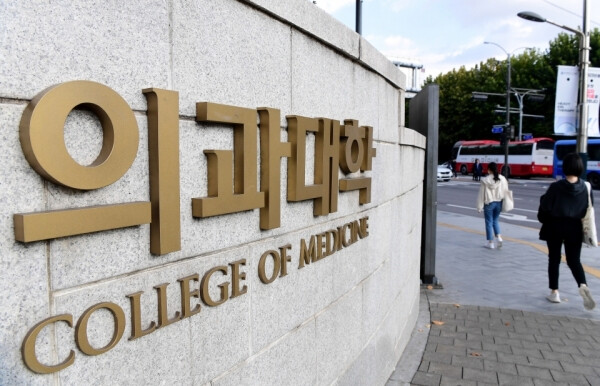
Seoul, South Korea – South Korea’s highly competitive medical school admissions landscape has experienced an unexpected twist this year, with significantly higher unenrollment rates at medical, dental, pharmaceutical, and traditional Korean medicine schools following the undergraduate admissions process.
According to Jongno Academy, a leading educational consultancy, a staggering 99.6% of students who were initially accepted into four non-metropolitan medical schools—Pusan National University, Yonsei University Mirae Campus, Jeju National University, and Chungbuk National University—failed to enroll. This represents a substantial increase from the previous year's enrollment rate of 59.7%.
A similar trend was observed in other health science programs. Pharmaceutical schools reported an average unenrollment rate of 79%, up from 54.3% the year before. Dental schools, such as Seoul National University (32%) and Yonsei University (94.1%), also saw significant drops in enrollment, while Busan National University’s traditional Korean medicine program experienced a complete unenrollment.
Reasons for the Surge in Unenrollments
Experts attribute the surge in unenrollments to several factors, primarily the expansion of medical school enrollment quotas. The increased competition for limited medical school seats has led to a situation where many students, even those admitted to prestigious medical schools, are opting to enroll in other health science programs. However, with the expansion of medical school quotas, these students are now finding it easier to switch to medical programs after their initial enrollment.
"In non-metropolitan regions, the expansion of regional quota systems for medical schools has led to a situation where students admitted to pharmaceutical or traditional Korean medicine programs are opting to enroll in medical schools instead," explained Im Sung-ho, CEO of Jongno Academy. "Similarly, in metropolitan areas, the increased medical school enrollment quotas have resulted in students switching between medical and pharmaceutical programs."
Implications for the Admissions Landscape
The high unenrollment rates are expected to have a significant impact on the undergraduate admissions landscape in South Korea. With a large number of students switching programs after the initial enrollment period, universities are likely to face challenges in filling their seats. Moreover, the increased competition for medical school seats is expected to persist in the coming years, putting further pressure on the higher education system.
As a result of these developments, experts predict that there will be a substantial increase in the number of students who will be eligible for the postgraduate admissions process. This could lead to even more intense competition for postgraduate programs in various fields.
[Copyright (c) Global Economic Times. All Rights Reserved.]




























